Angles & Demons Read online
Page 2
Langdon looked up warily at the craft. "I think I’d prefer a conventional jet."
The pilot motioned up the gangplank. "This way, please, Mr. Langdon. Watch your step."
Minutes later, Langdon was seated inside the empty cabin. The pilot buckled him into the front row and disappeared toward the front of the aircraft.
The cabin itself looked surprisingly like a wide-body commercial airliner. The only exception was that it had no windows, which made Langdon uneasy. He had been haunted his whole life by a mild case of claustrophobia—the vestige of a childhood incident he had never quite overcome.
Langdon’s aversion to closed spaces was by no means debilitating, but it had always frustrated him. It manifested itself in subtle ways. He avoided enclosed sports like racquetball or squash, and he had gladly paid a small fortune for his airy, high-ceilinged Victorian home even though economical faculty housing was readily available. Langdon had often suspected his attraction to the art world as a young boy sprang from his love of museums’ wide open spaces.
The engines roared to life beneath him, sending a deep shudder through the hull. Langdon swallowed hard and waited. He felt the plane start taxiing. Piped-in country music began playing quietly overhead.
A phone on the wall beside him beeped twice. Langdon lifted the receiver.
"Hello?"
"Comfortable, Mr. Langdon?"
"Not at all."
"Just relax. We’ll be there in an hour."
"And where exactly is there?" Langdon asked, realizing he had no idea where he was headed.
"Geneva," the pilot replied, revving the engines. "The lab’s in Geneva."
"Geneva," Langdon repeated, feeling a little better. "Upstate New York. I’ve actually got family near Seneca Lake. I wasn’t aware Geneva had a physics lab."
The pilot laughed. "Not Geneva, New York, Mr. Langdon. Geneva, Switzerland."
The word took a long moment to register. "Switzerland?" Langdon felt his pulse surge. "I thought you said the lab was only an hour away!"
"It is, Mr. Langdon." The pilot chuckled. "This plane goes Mach fifteen."
5
On a busy European street, the killer serpentined through a crowd. He was a powerful man. Dark and potent. Deceptively agile. His muscles still felt hard from the thrill of his meeting.
It went well, he told himself. Although his employer had never revealed his face, the killer felt honored to be in his presence. Had it really been only fifteen days since his employer had first made contact? The killer still remembered every word of that call . . .
"My name is Janus," the caller had said. "We are kinsmen of a sort. We share an enemy. I hear your skills are for hire."
"It depends whom you represent," the killer replied.
The caller told him.
"Is this your idea of a joke?"
"You have heard our name, I see," the caller replied.
"Of course. The brotherhood is legendary."
"And yet you find yourself doubting I am genuine."
"Everyone knows the brothers have faded to dust."
"A devious ploy. The most dangerous enemy is that which no one fears."
The killer was skeptical. "The brotherhood endures?"
"Deeper underground than ever before. Our roots infiltrate everything you see . . . even the sacred fortress of our most sworn enemy."
"Impossible. They are invulnerable."
"Our reach is far."
"No one’s reach is that far."
"Very soon, you will believe. An irrefutable demonstration of the brotherhood’s power has already transpired. A single act of treachery and proof."
"What have you done?"
The caller told him.
The killer’s eyes went wide. "An impossible task."
The next day, newspapers around the globe carried the same headline. The killer became a believer.
Now, fifteen days later, the killer’s faith had solidified beyond the shadow of a doubt. The brotherhood endures, he thought. Tonight they will surface to reveal their power.
As he made his way through the streets, his black eyes gleamed with foreboding. One of the most covert and feared fraternities ever to walk the earth had called on him for service. They have chosen wisely, he thought. His reputation for secrecy was exceeded only by that of his deadliness.
So far, he had served them nobly. He had made his kill and delivered the item to Janus as requested. Now, it was up to Janus to use his power to ensure the item’s placement.
The placement . . .
The killer wondered how Janus could possibly handle such a staggering task. The man obviously had connections on the inside. The brotherhood’s dominion seemed limitless.
Janus, the killer thought. A code name, obviously. Was it a reference, he wondered, to the Roman two-faced god . . . or to the moon of Saturn? Not that it made any difference. Janus wielded unfathomable power. He had proven that beyond a doubt.
As the killer walked, he imagined his ancestors smiling down on him. Today he was fighting their battle, he was fighting the same enemy they had fought for ages, as far back as the eleventh century . . . when the enemy’s crusading armies had first pillaged his land, raping and killing his people, declaring them unclean, defiling their temples and gods.
His ancestors had formed a small but deadly army to defend themselves. The army became famous across the land as protectors—skilled executioners who wandered the countryside slaughtering any of the enemy they could find. They were renowned not only for their brutal killings, but also for celebrating their slayings by plunging themselves into drug-induced stupors. Their drug of choice was a potent intoxicant they called hashish.
As their notoriety spread, these lethal men became known by a single word—Hassassin—literally "the followers of hashish." The name Hassassin became synonymous with death in almost every language on earth. The word was still used today, even in modern English . . . but like the craft of killing, the word had evolved.
It was now pronounced assassin.
6
Sixty-four minutes had passed when an incredulous and slightly air-sick Robert Langdon stepped down the gangplank onto the sun-drenched runway. A crisp breeze rustled the lapels of his tweed jacket. The open space felt wonderful. He squinted out at the lush green valley rising to snowcapped peaks all around them.
I’m dreaming, he told himself. Any minute now I’ll be waking up.
"Welcome to Switzerland," the pilot said, yelling over the roar of the X-33’s misted-fuel HEDM engines winding down behind them.
Langdon checked his watch. It read 7:07 A.M.
"You just crossed six time zones," the pilot offered. "It’s a little past 1 P.M. here."
Langdon reset his watch.
"How do you feel?"
He rubbed his stomach. "Like I’ve been eating Styrofoam."
The pilot nodded. "Altitude sickness. We were at sixty thousand feet. You’re thirty percent lighter up there. Lucky we only did a puddle jump. If we’d gone to Tokyo I’d have taken her all the way up—a hundred miles. Now that’ll get your insides rolling."
Langdon gave a wan nod and counted himself lucky. All things considered, the flight had been remarkably ordinary. Aside from a bone-crushing acceleration during take off, the plane’s motion had been fairly typical—occasional minor turbulence, a few pressure changes as they’d climbed, but nothing at all to suggest they had been hurtling through space at the mind-numbing speed of 11,000 miles per hour.
A handful of technicians scurried onto the runway to tend to the X-33. The pilot escorted Langdon to a black Peugeot sedan in a parking area beside the control tower. Moments later they were speeding down a paved road that stretched out across the valley floor. A faint cluster of buildings rose in the distance. Outside, the grassy plains tore by in a blur.
Langdon watched in disbelief as the pilot pushed the speedometer up around 170 kilometers an hour—over 100 miles per hour. What is it with this guy and speed? he wondered.
/>
"Five kilometers to the lab," the pilot said. "I’ll have you there in two minutes."
Langdon searched in vain for a seat belt. Why not make it three and get us there alive?
The car raced on.
"Do you like Reba?" the pilot asked, jamming a cassette into the tape deck.
A woman started singing. "It’s just the fear of being alone . . . "
No fear here, Langdon thought absently. His female colleagues often ribbed him that his collection of museum-quality artifacts was nothing more than a transparent attempt to fill an empty home, a home they insisted would benefit greatly from the presence of a woman. Langdon always laughed it off, reminding them he already had three loves in his life—symbology, water polo, and bachelorhood—the latter being a freedom that enabled him to travel the world, sleep as late as he wanted, and enjoy quiet nights at home with a brandy and a good book.
"We’re like a small city," the pilot said, pulling Langdon from his daydream. "Not just labs. We’ve got supermarkets, a hospital, even a cinema."
Langdon nodded blankly and looked out at the sprawling expanse of buildings rising before them.
"In fact," the pilot added, "we possess the largest machine on earth."
"Really?" Langdon scanned the countryside.
"You won’t see it out there, sir." The pilot smiled. "It’s buried six stories below the earth."
Langdon didn’t have time to ask. Without warning the pilot jammed on the brakes. The car skidded to a stop outside a reinforced sentry booth.
Langdon read the sign before them. SECURITE. ARRETEZ. He suddenly felt a wave of panic, realizing where he was. "My God! I didn’t bring my passport!"
"Passports are unnecessary," the driver assured. "We have a standing arrangement with the Swiss government."
Langdon watched dumbfounded as his driver gave the guard an ID. The sentry ran it through an electronic authentication device. The machine flashed green.
"Passenger name?"
"Robert Langdon," the driver replied.
"Guest of?"
"The director."
The sentry arched his eyebrows. He turned and checked a computer printout, verifying it against the data on his computer screen. Then he returned to the window. "Enjoy your stay, Mr. Langdon."
The car shot off again, accelerating another 200 yards around a sweeping rotary that led to the facility’s main entrance. Looming before them was a rectangular, ultramodern structure of glass and steel. Langdon was amazed by the building’s striking transparent design. He had always had a fond love of architecture.
"The Glass Cathedral," the escort offered.
"A church?"
"Hell, no. A church is the one thing we don’t have. Physics is the religion around here. Use the Lord’s name in vain all you like," he laughed, "just don’t slander any quarks or mesons."
Langdon sat bewildered as the driver swung the car around and brought it to a stop in front of the glass building. Quarks and mesons? No border control? Mach 15 jets? Who the hell ARE these guys? The engraved granite slab in front of the building bore the answer:
(CERN)
Conseil Européen pour la
Recherche Nucléaire
"Nuclear Research?" Langdon asked, fairly certain his translation was correct.
The driver did not answer. He was leaning forward, busily adjusting the car’s cassette player. "This is your stop. The director will meet you at this entrance."
Langdon noted a man in a wheelchair exiting the building. He looked to be in his early sixties. Gaunt and totally bald with a sternly set jaw, he wore a white lab coat and dress shoes propped firmly on the wheelchair’s footrest. Even at a distance his eyes looked lifeless—like two gray stones.
"Is that him?" Langdon asked.
The driver looked up. "Well, I’ll be." He turned and gave Langdon an ominous smile. "Speak of the devil."
Uncertain what to expect, Langdon stepped from the vehicle.
The man in the wheelchair accelerated toward Langdon and offered a clammy hand. "Mr. Langdon? We spoke on the phone. My name is Maximilian Kohler."
7
Maximilian Kohler, director general of CERN, was known behind his back as König—King. It was a title more of fear than reverence for the figure who ruled over his dominion from a wheelchair throne. Although few knew him personally, the horrific story of how he had been crippled was lore at CERN, and there were few there who blamed him for his bitterness . . . nor for his sworn dedication to pure science.
Langdon had only been in Kohler’s presence a few moments and already sensed the director was a man who kept his distance. Langdon found himself practically jogging to keep up with Kohler’s electric wheelchair as it sped silently toward the main entrance. The wheelchair was like none Langdon had ever seen—equipped with a bank of electronics including a multiline phone, a paging system, computer screen, even a small, detachable video camera. King Kohler’s mobile command center.
Langdon followed through a mechanical door into CERN’s voluminous main lobby.
The Glass Cathedral, Langdon mused, gazing upward toward heaven.
Overhead, the bluish glass roof shimmered in the afternoon sun, casting rays of geometric patterns in the air and giving the room a sense of grandeur. Angular shadows fell like veins across the white tiled walls and down to the marble floors. The air smelled clean, sterile. A handful of scientists moved briskly about, their footsteps echoing in the resonant space.
"This way, please, Mr. Langdon." His voice sounded almost computerized. His accent was rigid and precise, like his stern features. Kohler coughed and wiped his mouth on a white handkerchief as he fixed his dead gray eyes on Langdon. "Please hurry." His wheelchair seemed to leap across the tiled floor.
Langdon followed past what seemed to be countless hallways branching off the main atrium. Every hallway was alive with activity. The scientists who saw Kohler seemed to stare in surprise, eyeing Langdon as if wondering who he must be to command such company.
"I’m embarrassed to admit," Langdon ventured, trying to make conversation, "that I’ve never heard of CERN."
"Not surprising," Kohler replied, his clipped response sounding harshly efficient. "Most Americans do not see Europe as the world leader in scientific research. They see us as nothing but a quaint shopping district—an odd perception if you consider the nationalities of men like Einstein, Galileo, and Newton."
Langdon was unsure how to respond. He pulled the fax from his pocket. "This man in the photograph, can you—"
Kohler cut him off with a wave of his hand. "Please. Not here. I am taking you to him now." He held out his hand. "Perhaps I should take that."
Langdon handed over the fax and fell silently into step.
Kohler took a sharp left and entered a wide hallway adorned with awards and commendations. A particularly large plaque dominated the entry. Langdon slowed to read the engraved bronze as they passed.
ARS ELECTRONICA AWARD
For Cultural Innovation in the Digital Age
Awarded to Tim Berners Lee and CERN
for the invention of the
WORLDWIDE WEB
Well I’ll be damned, Langdon thought, reading the text. This guy wasn’t kidding. Langdon had always thought of the Web as an American invention. Then again, his knowledge was limited to the site for his own book and the occasional on-line exploration of the Louvre or El Prado on his old Macintosh.
"The Web," Kohler said, coughing again and wiping his mouth, "began here as a network of in-house computer sites. It enabled scientists from different departments to share daily findings with one another. Of course, the entire world is under the impression the Web is U.S. technology."
Langdon followed down the hall. "Why not set the record straight?"
Kohler shrugged, apparently disinterested. "A petty misconception over a petty technology. CERN is far greater than a global connection of computers. Our scientists produce miracles almost daily."
Langdon gave Kohler
a questioning look. "Miracles?" The word "miracle" was certainly not part of the vocabulary around Harvard’s Fairchild Science Building. Miracles were left for the School of Divinity.
"You sound skeptical," Kohler said. "I thought you were a religious symbologist. Do you not believe in miracles?"
"I’m undecided on miracles," Langdon said. Particularly those that take place in science labs.
"Perhaps miracle is the wrong word. I was simply trying to speak your language."
"My language?" Langdon was suddenly uncomfortable. "Not to disappoint you, sir, but I study religious symbology—I’m an academic, not a priest."
Kohler slowed suddenly and turned, his gaze softening a bit. "Of course. How simple of me. One does not need to have cancer to analyze its symptoms."
Langdon had never heard it put quite that way.
As they moved down the hallway, Kohler gave an accepting nod. "I suspect you and I will understand each other perfectly, Mr. Langdon."
Somehow Langdon doubted it.
As the pair hurried on, Langdon began to sense a deep rumbling up ahead. The noise got more and more pronounced with every step, reverberating through the walls. It seemed to be coming from the end of the hallway in front of them.
"What’s that?" Langdon finally asked, having to yell. He felt like they were approaching an active volcano.
"Free Fall Tube," Kohler replied, his hollow voice cutting the air effortlessly. He offered no other explanation.
Langdon didn’t ask. He was exhausted, and Maximilian Kohler seemed disinterested in winning any hospitality awards. Langdon reminded himself why he was here. Illuminati. He assumed somewhere in this colossal facility was a body . . . a body branded with a symbol he had just flown 3,000 miles to see.
As they approached the end of the hall, the rumble became almost deafening, vibrating up through Langdon’s soles. They rounded the bend, and a viewing gallery appeared on the right. Four thick-paned portals were embedded in a curved wall, like windows in a submarine. Langdon stopped and looked through one of the holes.

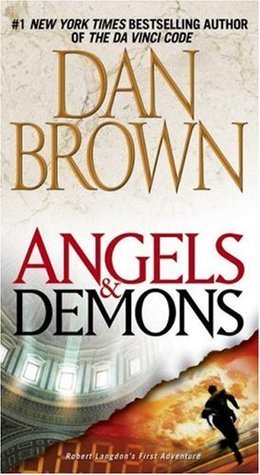 Angels & Demons
Angels & Demons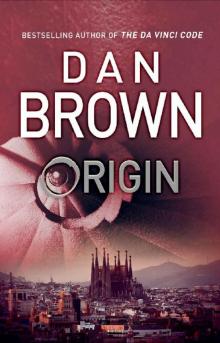 Origin
Origin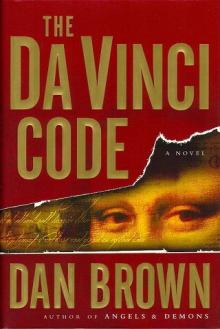 The Da Vinci Code
The Da Vinci Code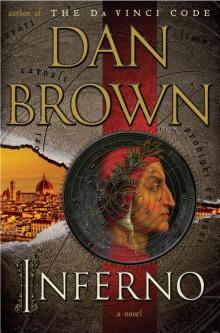 Inferno
Inferno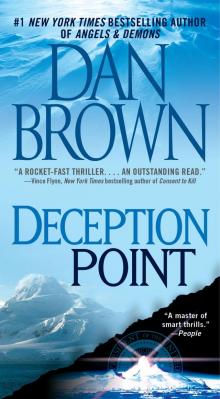 Deception Point
Deception Point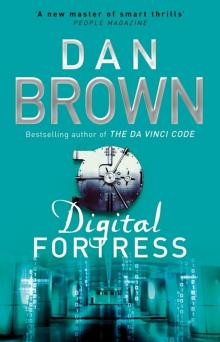 Digital Fortress
Digital Fortress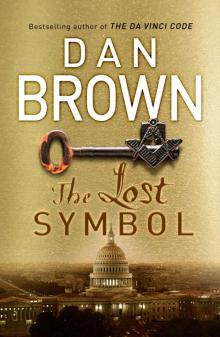 The Lost Symbol
The Lost Symbol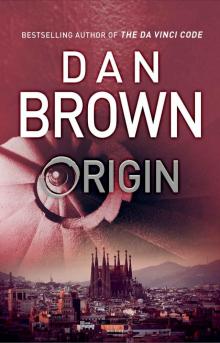 Origin: (Robert Langdon Book 5)
Origin: (Robert Langdon Book 5)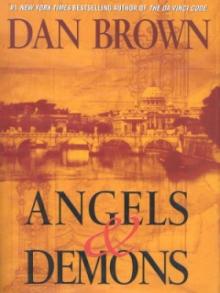 Angles & Demons
Angles & Demons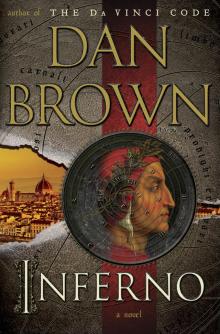 Inferno: A Novel
Inferno: A Novel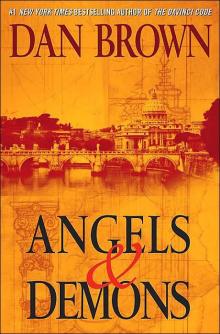 Angels & Demons rl-1
Angels & Demons rl-1 The Great Expectations School
The Great Expectations School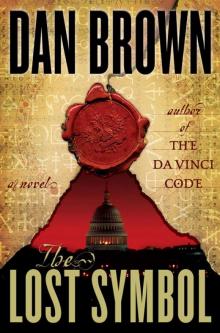 The Lost Symbol rl-3
The Lost Symbol rl-3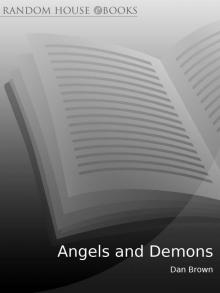 Angels and Demons
Angels and Demons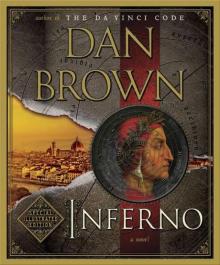 Inferno: Special Illustrated Edition: Featuring Robert Langdon
Inferno: Special Illustrated Edition: Featuring Robert Langdon